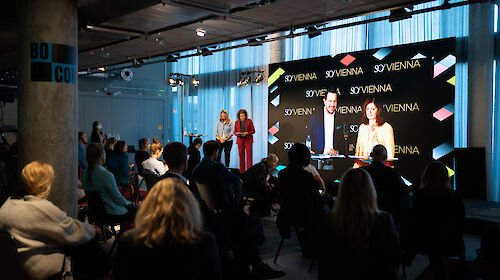"Our mission: To develop a vision for the new normal"
GCB FutureTalks #9 with Stephen Rose, Siemens AG
 © Stephen Rose
© Stephen Rose
Stephen Rose, Senior Vice President and Head of Global Communication Services at Siemens AG, is convinced that live communication is in a new normal state as a result of the corona pandemic. He spoke with Matthias Schultze for the GCB FutureTalks series about what this means for the planning and implementation of business events and why TV studios are a good role model.
Matthias Schultze: The Corona pandemic has turned the business event world upside down. What are your biggest challenges now?
Stephen Rose: First, we need to avert the damage caused by cancellations and postponed events, and work with suppliers and service providers to find solutions to support the endangered environment. The current situation hardly allows for resilient planning and thus also causes uncertainty in resource planning. Another key challenge we face every day is the rapid scaling of virtual event formats that offer real added value for participants. In a nutshell: Our mission is to develop a vision for the "new normal" in which we live from now on.
What will live communication look like in this "new normal"?
I would like to refer the term “new normal” to how live communication is planned and implemented in the real world. As long as no vaccine against the coronavirus is available, there will have to be far-reaching new hygiene and distance rules. Technical solutions for distance measurement or tracking in order to understand infection chains could also play a role. Such concepts are already being worked intensively on.
Trade fairs and other business events already include helpful elements, such as electronic visitor registration. So why should a trade fair or business event be viewed more disadvantageously than a DIY store where visitors don't even have to register. For most real events, there will have to be a digital extension in the future in order to include those target groups that cannot participate on site.
With regard to purely digital formats, the unanimous opinion is that they have to be faster and less expensive - but at the same time they have to compensate for certain disadvantages compared to the real encounter, since not all senses can be addressed as in the haptic world. Nevertheless, the participants have to be reached emotionally. This influences the way content is produced and processed. Here we can certainly learn a lot from TV studios, for example. The change between "real" and "virtual" will be easier in the future based on current experience - and the combination of both will open up new, exciting fields, since the virtual space also allows its own possibilities for showcases, which in the real environment are not possible.
In general, I think that some events will no longer be carried out in the same way as before the lockdown. Other formats could come back stronger than ever - I predict a kind of consolidation and focus on "What really matters".
Do you think that virtual events can replace a live event? If so, what prerequisites must be created for this - even beyond technical questions?
Some of the live events that have taken place so far can definitely be moved to virtual space. Since the beginning of mankind, we have felt the need to meet and exchange ideas in person - and this will remain so.
But I could imagine that in the future we will think more carefully about where exactly we are going and why. The prerequisite is that the virtual offerings of these events are so attractive and convenient for all participants that there is no need to return to previous formats. The advantages that go hand in hand with this are, among other things, independence of travel and location, also in terms of sustainability, and the option of making content available on demand even after the event has taken place. Finally, virtual events offer extensive data that enables detailed analyses and targeted, individual communication with participants.
Another aspect is important to me in this context: In times of social distancing, we must be careful that virtual formats do not distance us emotionally even further. Ultimately, the point is that technology helps us to build bridges between people, their emotions and needs, and companies.
 ©
© ©
© ©
© ©
©